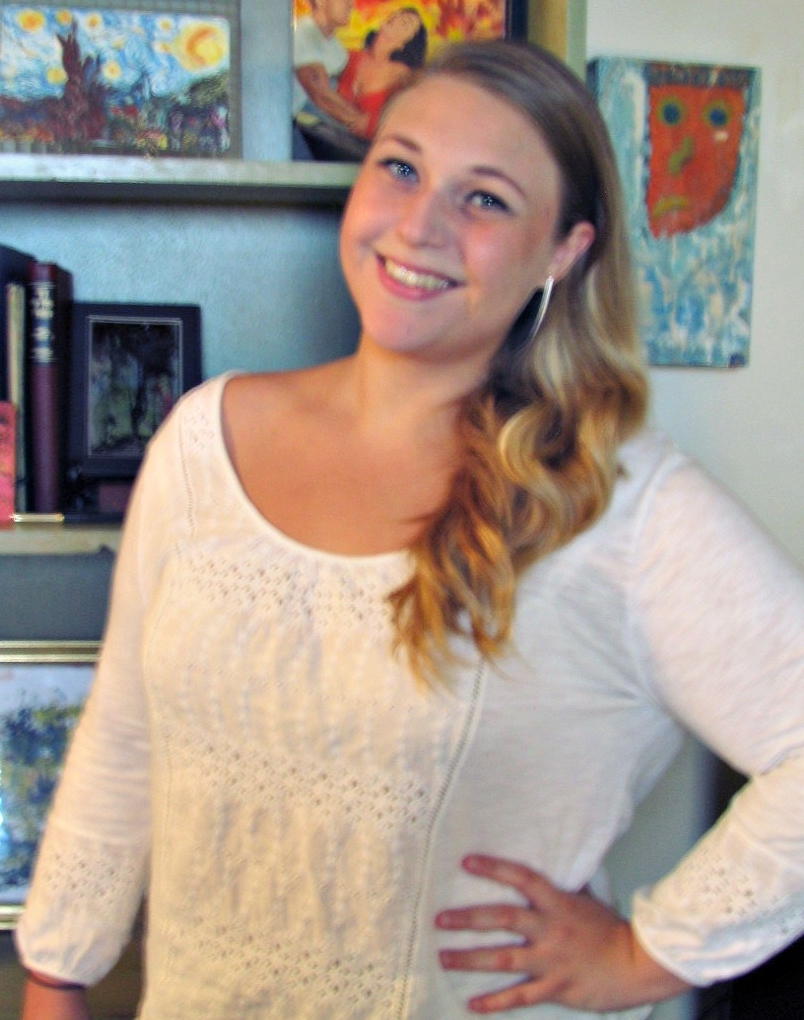Thursday, Jul 25, 2013
Once Nicole Lipari ’14 landed the internship of her dreams, it took a prestigious travel grant from the N.J. Women’s & Gender Studies Consortium to make it a reality.
by Sean Ramsden
Not long after Nicole Lipari ’14 landed her dream internship, she began to calculate the nightmarish cost of commuting there, and wondered if the otherwise perfect opportunity might be lost for need of money.
The History major had her interest piqued from the moment she learned about the Lesbian Herstory Archives (LHA) in the Gender and Sexuality in American History course of Dr. Erica Ryan.
“I went back to my dorm that night and applied for the internship,” said Lipari of the Brooklyn-based historical collection. “When I found out I’d gotten the internship, I was ecstatic; this was my dream job!”
However, Lipari’s excitement was quickly stifled after she shared the good news with her family. Together, they quickly tabulated the costs of commuting from her home in Bayonne, N.J., to Brooklyn’s Park Slope neighborhood – nearly $27 round trip by various rail lines.
“I soon found myself scrambling to figure out how I’d pay for the commute,” said Lipari, who also devotes significant time at home to caring for her brother, who has a disability, making part-time work impractical. “I come from a single-parent, working-class household and we often struggle to make ends meet.”
For Lipari, the solution came from the New Jersey Women’s & Gender Studies Consortium, which awarded Lipari a $1,000 grant to defray internship travel and expenses for internship work. She was one of just two students chosen for the organization’s top-level internship grant.
“So, if it wasn’t for the New Jersey Women’s & Gender Studies Consortium Internship Award, I’m not sure I would have been able to commit to interning at the LHA,” said Lipari, who was steered toward the grant by Dr. Mary Morse, associate professor of English and director of Rider’s Gender and Sexuality Studies Program. “When I received the e-mail saying I got it, I literally cried. I was so thankful.”
Lipari travels to the Lesbian Herstory Archives two or three times per week, so the effect of the grant is significant, she says. In addition to the daily cost, the time-consuming commute absorbs three valuable hours per day from her schedule. However, Lipari, who would like to work in the field of public history, whether in a museum or archive, knows the time she spends there is invaluable.
“Right now, my main responsibility is working with the special collections,” said Lipari, who added that interns typically are assigned large boxes of historically relevant materials, including tax forms, personal journal entries, agendas, and even buttons and T-shirts. They are then asked to sort and categorize particular collections.
“My project for the last couple of months has been cataloging four boxes that were donated on behalf of a woman named Judith O’Neil.” she explained. “She was a self-identified lesbian feminist who worked closely with organizations such as the New York chapter of NOW, the National Organization for Women, and pioneered health research and education for women, especially concerning breast and ovarian cancer.”
Lipari’s efforts at the LHA also provide her key information for her academic work at Rider.
“Now and then, I also get to poke around the archives so that I can do my own research for my senior capstone course,” she explained. “So far, the experience has been amazing. I’m learning so much not only about Ms. O’Neil, but also what it takes to work as an archivist – or, in my case, an archivette.”
The intellectually curious Lipari, an Arts Administration minor, has also considered careers in government, particularly with civil rights departments or even urban development. She says that the abundance of strong programs at Rider helped steer her to Lawrenceville when it was time to choose a school.
“Originally, I came in as a History and Secondary Education double major, and I knew that Rider has an esteemed Education program,” she explained. “The small, intimate atmosphere was also a huge determining factor. I knew I wanted to go to a school where the professors in my department knew me not only as a student, but as a person, and that’s exactly what I’ve experienced at Rider. The History department is phenomenal, especially in that respect.”

